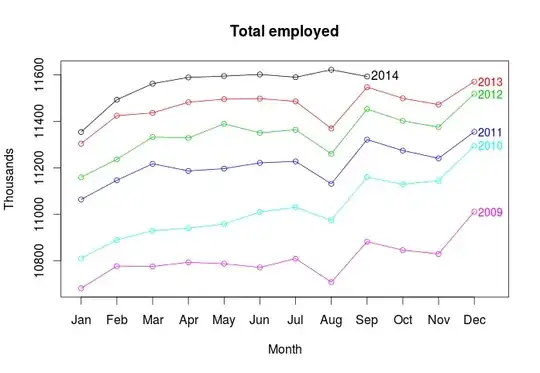I am trying to do time series analysis in R. I have data time series data set like this.
Month Year Value
December 2013 5300
January 2014 289329.8
February 2014 596518
March 2014 328457
April 2014 459600
May 2014 391356
June 2014 406288
July 2014 644339
August 2014 251238
September 2014 386466.5
October 2014 459792
November 2014 641724
December 2014 399831
January 2015 210759
February 2015 121690
March 2015 280070
April 2015 41336
Googling I found I can use auto.arima function to forecast the result. I managed to write R code to do forecast using auto.arima function
data <- c(5300,289329.8,596518,328457,459600,391356,406288,644339,251238,386466.5,459792,641724,399831,210759,121690,280070,41336)
data.ts <- ts(data, start=c(2013, 12), end=c(2015, 4), frequency=12)
plot(data.ts)
fit <- auto.arima(data.ts)
forec <- forecast(fit)
plot(forec)
Problem is my forecast result always remain same.

Could any tell me what is going wrong. or help me to correct my forecast result. Thanks